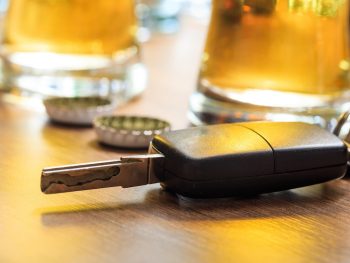More than one in 10 (11%) of motorists have driven despite knowing they have consumed more than the legal drink drive limit, a new study has found.
 Carried out by training and risk management specialist TTC, the survey brings weight to the firm’s calls for fleets to introduce drug and alcohol screening for drivers in a move to save lives this festive season.
Carried out by training and risk management specialist TTC, the survey brings weight to the firm’s calls for fleets to introduce drug and alcohol screening for drivers in a move to save lives this festive season.
The study found that one in four said they have driven after having a drink or two, but were confident they had consumed less than the legal drink drive limit.
However, 23% of all motorists surveyed admit they don’t know what the legal drink drive limit is.
Nearly a fifth of respondents (19%) admitted to accepting a lift from someone who has drunk alcohol or taken drugs, with 18–24-year-olds more likely to do so.
Meanwhile, 11% of motorists in TTC’s survey did not believe that if you are found guilty of drink driving, you will receive a criminal conviction.
And motorists wrongly think that after an evening of drinking, a glass of water before bed, or having seven hours’ sleep or eating a hearty breakfast the next morning will mean they are safe to drive to work.
Latest figures from the Department for Transport show road fatalities as a result of drink driving are the highest they have been since 2009, and TTC believes businesses operating fleets of vehicles can play a crucial role in safeguarding the UK’s roads.
David Marsh, CEO of TTC, said: “Part of a business’s duty of care towards their staff and others is making sure their drivers are fit to perform their duties. This includes making sure they are properly informed and deterred from driving under the influence. Educating employees, detecting alcohol or drugs in the system and then preventing drink and drug driving is crucial. We actively support businesses that put in place an effective driver policy that embraces fast accurate screening to reduce the risk of their employees’ drink or drug driving while on work business.”
TTC says there’s more to consider than duty of care alone. For a business reliant on its employees’ driving, a driving ban of a year or more will have a serious impact on productivity and profitability and may mean the employer has to recruit replacement drivers. The individual themselves may miss out on earnings or even lose their job depending on the terms and conditions of their employment.
“Businesses have a lot to lose if their staff are caught driving under the influence,” continued Marsh. “Thanks to our background in pioneering offender training for police forces across the UK, we can offer some incredibly effective driver behaviour change education. This, coupled with random and with-cause employee screening can prove a powerful force in helping to stop drink and drug driving.”
As businesses ramp up corporate entertaining this festive season, TTC’s research also shows that while some respondents said they would not drink drive themselves, almost one in five (19%) say they have knowingly accepted a lift from a driver who has drunk alcohol or taken recreational drugs. Even as a passenger, an employee could receive the same criminal conviction as their ‘designated driver’ if the driver is caught drink or drug driving.
Worryingly, those aged 18-24 are the most likely to accept a lift from someone who is likely to be over the drink drive limit or taken recreational drugs. This is especially concerning as 17–24-year-old men are overrepresented in deaths and serious injuries involving drink driving.
Furthermore, motorists didn’t appear to understand how alcohol metabolises in the body. Many drivers surveyed thought a glass of water, a sleep or a fry-up would ‘sort them out.’ The good news, however, is that 50% of motorists surveyed said they always leave 24 hours before driving after having a drink.
Marsh concluded: “Although being aware of units per alcoholic beverage and legal drink drive limits is essential, it is extremely hard to know if someone is over the legal drink drive limit at a given time. The amount of alcohol in a person’s breath, blood or urine at the time of testing will depend on their weight, age, metabolism, the amount of food they’ve eaten and other factors. That’s why when developing a drink and drug driving policy with our clients we always take a three-pronged approach – education, detection and prevention.
“Ignorance is no defence in court. Fleet managers have a responsibility to help their drivers understand the huge risk they pose to themselves and others when they, knowingly or otherwise, drink or drug drive. TTC continues to advocate ‘none for the road’, the very same message the Government is promoting with its latest Think! 0% campaign as it encourages all drivers, in particular young drivers, to embrace the increasing variety of 0% alcohol alternatives.”

